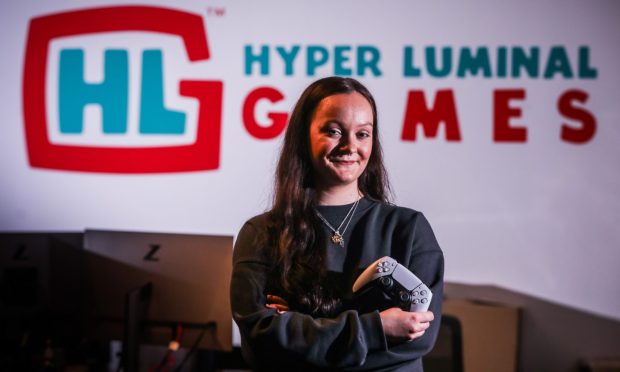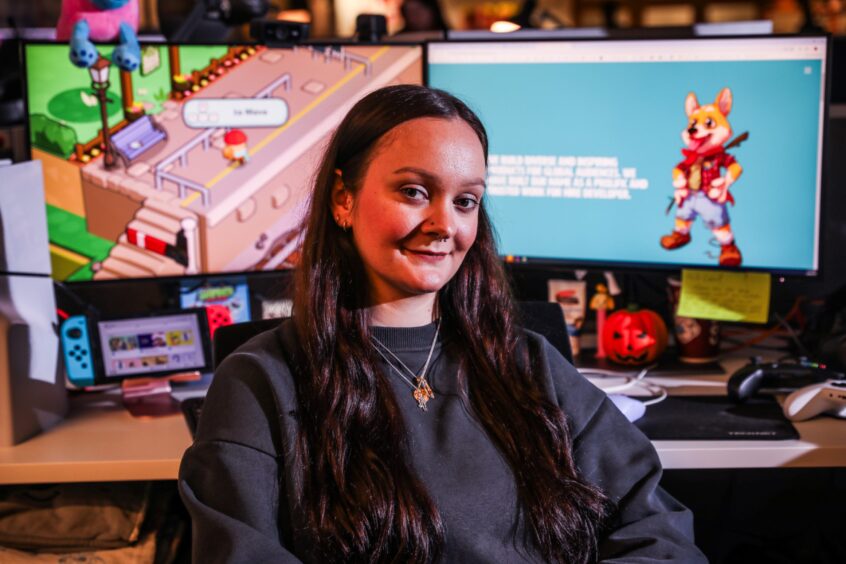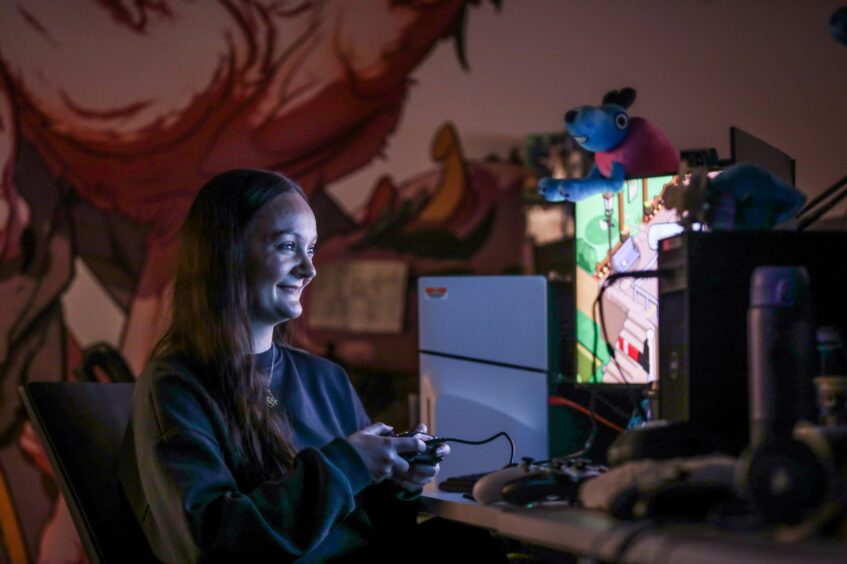Being paid to play video games sounds like a dream come true for dedicated gamers.
For Hannah Park, 27, it’s a reality.
She is a lead quality assurance tester for Hyper Luminal Games in Dundee.
That means she goes to work to play video games.
Quality assurance, she says, “is basically testing video games to make sure they are up to quality standards”.
Although she’s quick to point out there is more to the job than that.
Hannah, who lives in Dundee, told us how she got into the industry as an apprentice and just four years on leads a team of around 30 people.
Hyper Luminal Games is one of several gaming companies with bases in Dundee.
The city, which produced Spectrum computers in the 1980s, has become a leader in the field.
Global blockbuster Grand Theft Auto was made in Dundee by DMA Design, now Rockstar North. Minecraft was brought to console by 4J Studios.
Hannah started her career at Abertay University, which bolsters the industry with a series of related courses.
How a ‘gamer at heart’ became a video game tester
A keen artist as well as a ‘gamer at heart’, Hannah graduated from its computer arts degree course, which combines art, media and games, in 2019.
“I was applying for a few jobs, some more art focussed,” she says. “Then I saw there was an apprenticeship at Hyper Luminal for quality assurance.
“I love playing games and the design and development process around them. So just to work with them in any capacity, I was interested.”
She was successful and spent six months as an apprentice before moving quickly up the ladder.
One of her favourite test games
Hyper Luminal Games develops its own games and helps develop those of other publishers. More often than not Hannah tests games made by other studios.
They are largely indie titles but one better-known game she loved working on was psychological horror Still Wakes The Deep.
“That was really cool,” she says.
She tests games at various stages of development, from conception phase to ready for market.
“In essence, the core process is just playing the game,” she says. “We will make sure there are no issues, that you can play it from beginning to end, and we’ll flag anything we do come across.”
But, as she says, there’s more to the job than just playing games.
“I think that is the perception of the role, that you get to just sit and play games all day and that’s it.
“It is and it isn’t. That is a part of it but a lot of it is testing against different requirements and making sure it’s up to standard.
“There’s a lot of documentation, assessing functionality and providing feedback and reports.”
Does Hannah play more games after a working day?
As she has always been into gaming, Hannah reckons her job is “brilliant”.
“Every day is different and it’s always fresh and exciting.
“It’s a chance to play and experience games I might not have chosen myself outside work.”
Even after working with games all day, does Hannah still play at home?
“It depends maybe on the type of game I’m working on at the time.”
An intense game requiring a lot of attention might be enough for one day.
But she says: “I’m definitely still a gamer at heart and always have a game on the go I play at home in my personal time.
‘People think it’s pretty cool’
“You’d struggle to find people who work in the industry who don’t also play games at home. They’re in this job because they love games, it’s their passion.”
What reaction does she get from people when they learn her job?
“It depends a lot on the age of the people you’re talking too,” she says. “Younger people think it’s pretty cool and exciting and are always interested to hear more about it and how it works.
“Maybe older people or those without an interest in games, they don’t really understand what it is.
“They assume it’s an IT role and that you just work with computers!”













Conversation